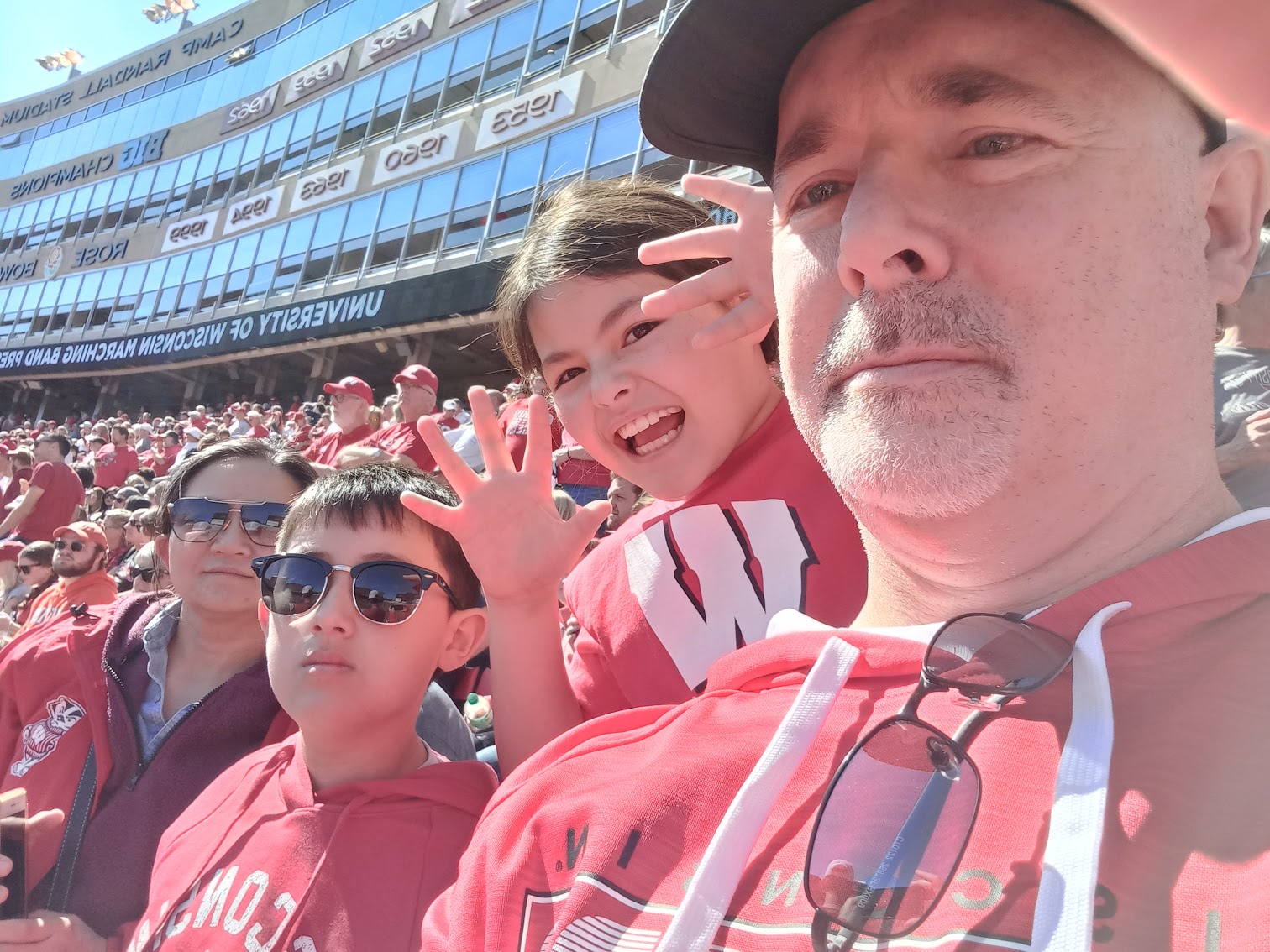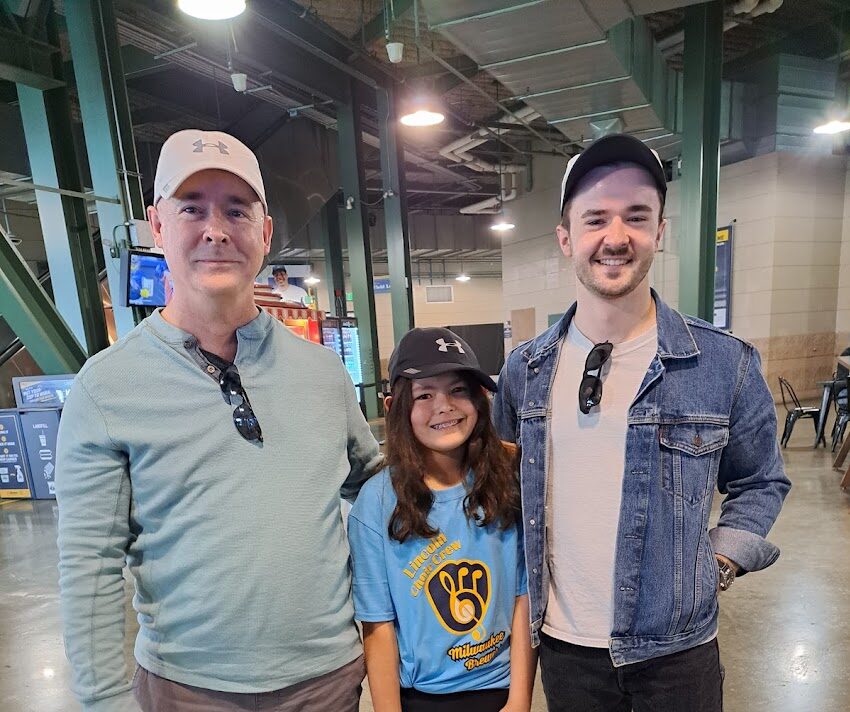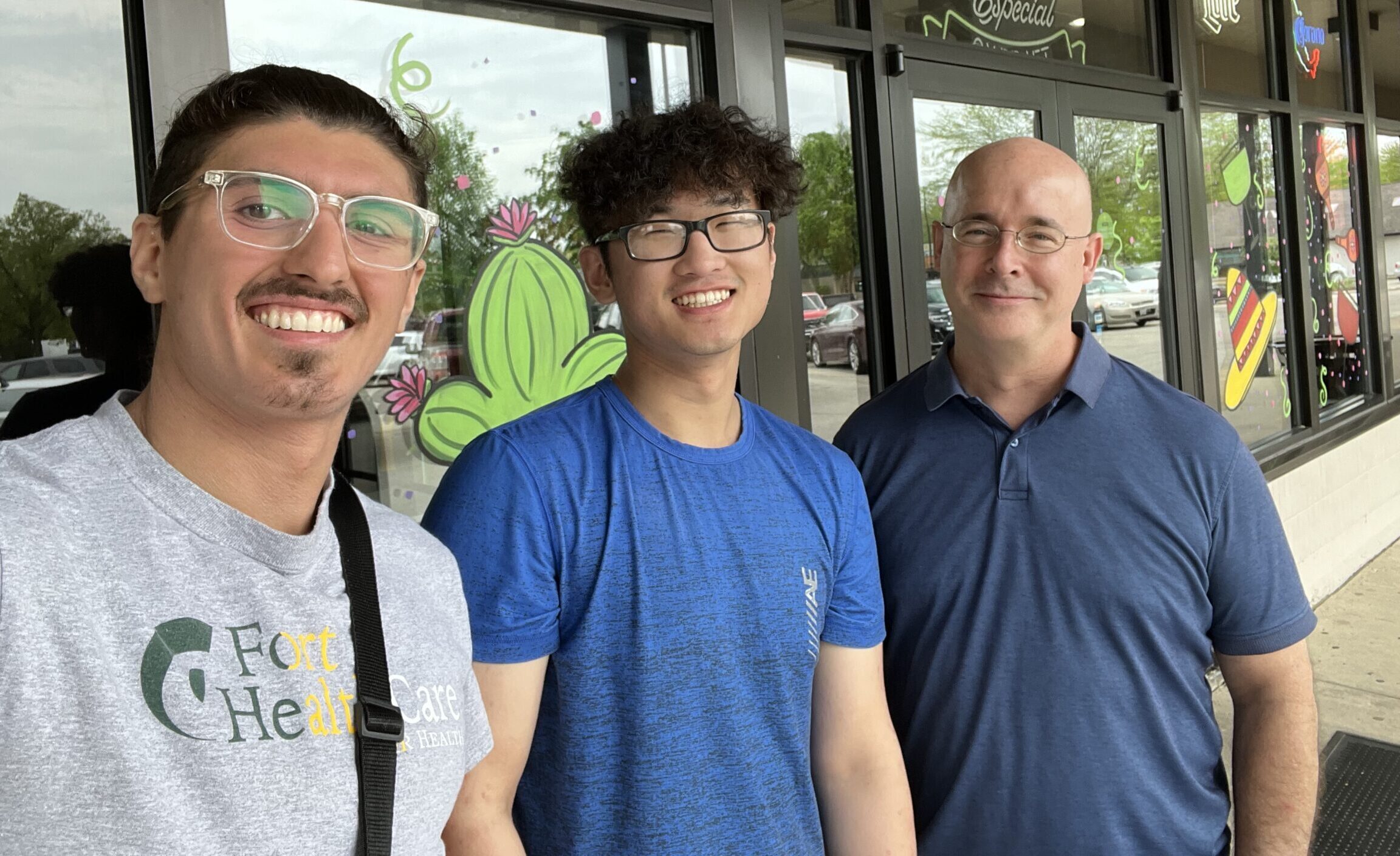Dr. Robert “Bob” Kuzoff is an instructor in the 100 percent online University of Wisconsin Master of Science in Applied Biotechnology and Graduate Certificate in Applied Bioinformatics. He’s also an associate professor in biology and computer science at the University of Wisconsin-Whitewater.

Bob’s early career saw many transitions. Having studied microbiology and philosophy as an undergraduate, he later grew fascinated with plant biology and how computers can be used to analyze entire genomes, transcriptomes, and proteomes of diverse species.
Bob pursued his PhD in plant biology at Washington State University, completing a portion of his research at the Smithsonian National Museum of Natural History, where he wrote several publications. After earning his doctorate, he transitioned into computational and molecular biology as a Katherine Esau Postdoctoral Fellow at the University of California, Davis. Following his fellowship, Bob landed his first faculty role at the University of Georgia.
“I was very excited,” he said. “I had my own lab. I had all this equipment. I had graduate students, technicians working in my laboratory. It was exciting to have such a big team.”
There was one drawback, however.
“I realized that I was spending at least 90 percent of my time in one room doing mainly one thing: writing,” he said. “Write a paper, write a grant. Write a grant, write a paper. Repeat over and over. It didn’t really suit me.”
Wanting to explore other opportunities, Bob accepted his current role at UW-Whitewater, where he feels more fulfilled by the variety in his day-to-day work. This includes teaching three online courses in the UW Applied Biotechnology master’s degree and Applied Bioinformatics graduate certificate:
- ABT 720: Experimental Design and Analysis in Biotechnology
- ABT 730: Python for Bioinformatics
- ABT 775: Tools for Data Analysis (R&D)
ABT 730 is exclusive to the Applied Bioinformatics graduate certificate, while ABT 720 and ABT 775 are also offered in the Applied Biotechnology master’s degree. Bob says each course is fully accessible to those without previous experience in R or Python.
“The courses meet students where they are and teach them everything they need to know to program effectively in those languages and to pretty quickly learn how to apply them to areas of interest.”
In the following Q&A, we spoke with Bob to learn more about his courses and what students can expect.

How can the skills learned in the UW Applied Bioinformatics certificate be used in biotechnology?
I probably could list an indefinite number of examples, [but] I’d like to illustrate one of the emerging areas in biotechnology and related fields, which is metagenomics.
So metagenomics, it’s fairly simple to understand conceptually. Basically, you scoop up some fluid or soil or other material from some source in a given environment, you separate out the DNA from your sample, and then you sequence the DNA. Once you sequence the DNA, you can learn about species that are present but may be invisible. They may be unculturable, meaning there’s no way we know of to grow them in a laboratory. They may be extinct.
They may not even be currently present in the ecosystem. For example, if they’re migratory—they were here, they left—we can detect their presence by sampling DNA. We can explore ecosystems in exotic places, like lakes in Antarctica that exist hundreds of feet below the surface of the ice. We can drill down into them, pull up a little fluid from the lake, isolate DNA from it, and learn about the critters that are down there.
Once we sequence the DNA that’s obtained from these samples, we then have to analyze it to make sense of it. You need a wealth of bioinformatics skills in order to analyze the sequence information that you obtain. For example, how do you sequence a strand of DNA? How do you compare it to other known sequences? How do you phylogenetically place it in a larger context? We learn bioinformatic methods to do all those things in the courses that I mentioned.
What can students expect from you as an instructor in an online program?
I love the phrase, “Variety is the spice of life.” I sometimes think about those students [in Harry Potter] who went to Hogwarts, and they had very different instructors. You learned potions from one, you learned defense against the dark arts from another. I thought it was very exciting for them to have instructors who are unique and diverse. It makes the experience exciting.
I have my distinctive characteristics. I have a strong bent toward pragmatism. I’m just very passionate about students graduating, having marketable skills that they did not have entering the program, and thereby gaining the power to access career options from which they were previously excluded. So my driving philosophy is that I want to empower students to successfully access career opportunities that may be presently out of reach.
I recognize that the students that I teach come from widely diverged academic fields, and they did their studies in different countries as undergraduates. They currently work in very different firms scattered across the US, Europe, and Asia. So my goal is to meet them wherever they are and provide them with the necessary resources to allow them to transition into areas in the broad fields of biotechnology and bioinformatics, to engage in research, and to pack their resumes with highly marketable skills and experiences.
Get Program Guide
Learn more about our 100% online degree and certificate programs.
What is your favorite part about teaching?
I really like the idea of helping other people to access opportunities that would have been otherwise out of reach. I feel for people who have gone down a certain career path in life and then just have a sense [of] “This isn’t really what I want to be doing.”
We only have this one life to live. So oftentimes, we wish for other opportunities. We’d like to be able to transition horizontally into something that resonates better with us personally. I really love to meet people who have a background in biology, and they say, “Gee, I’d love to do bioinformatics, but I just don’t know anything about computers.” And I tell them, “You know what? You can transition into that field. We can help you to learn about programming, and you don’t have to go back and get another undergraduate degree in computer science.”
I believe students in the program, past and present, have landed positions at over 40 biotech companies across the US. We had past students that were involved in designing the world’s first COVID detection kit, [and] also who worked at both of the companies that developed the world’s first COVID vaccine. We have students who are doing cutting-edge research on tailored therapeutics for cancer, an area of precision medicine. [We have] others who are working in pharmacogenomics, understanding how one drug can behave differently in you than me because our genomes differ, and so our response to a pharmaceutical product can differ.
So it’s very exciting, all the opportunities in this field, and to take folks who are eager to get in on the action to join these exciting firms and say, “You can do it. It’s OK that your background may be in just one area or another. We can complement what you already know with new skills.”

What keeps you motivated with your work in this field?
I mentioned earlier that I once had a job that basically involved writing all day, every day, day after day. And it lacked the kind of variety that I wish for in my career. Being able to teach courses in a rapidly changing field like biotechnology and also in bioinformatics, it keeps life exciting. New methods are being developed all the time, new applications of newly developed methods or even older methods, but applied to new problems. It keeps things fresh.
The students who come into the program, they’re very exciting, very interesting, admirable people from around the world and working in so many different companies. That’s exciting, to meet so many people, and to feel like perhaps I’ll have the opportunity to help this person have a better future than they would have had had they not joined this program. It’s a wonderful place to be.
Why should prospective students consider the UW Applied Bioinformatics certificate?
I think that the field has abundant opportunities right now. There is long-term projected growth in this area. As we mentioned, there are so many amazing careers and novel areas of research, just extraordinarily exciting breakthroughs happening in so many areas of biotechnology and bioinformatics.
But it’s a skill-rich area, so you have to have the necessary skills in order to pursue these roles. As long as market demand remains strong, [and] if this area seems attractive to a person individually, I would say opportunities are there. And this program provides you with the skills that will enable you to access those opportunities.
Want to learn more about the University of Wisconsin Master of Science in Applied Biotechnology or the Applied Bioinformatics Graduate Certificate? Talk to an enrollment adviser by calling 608-262-2011 or emailing learn@uwex.wisconsin.edu.









